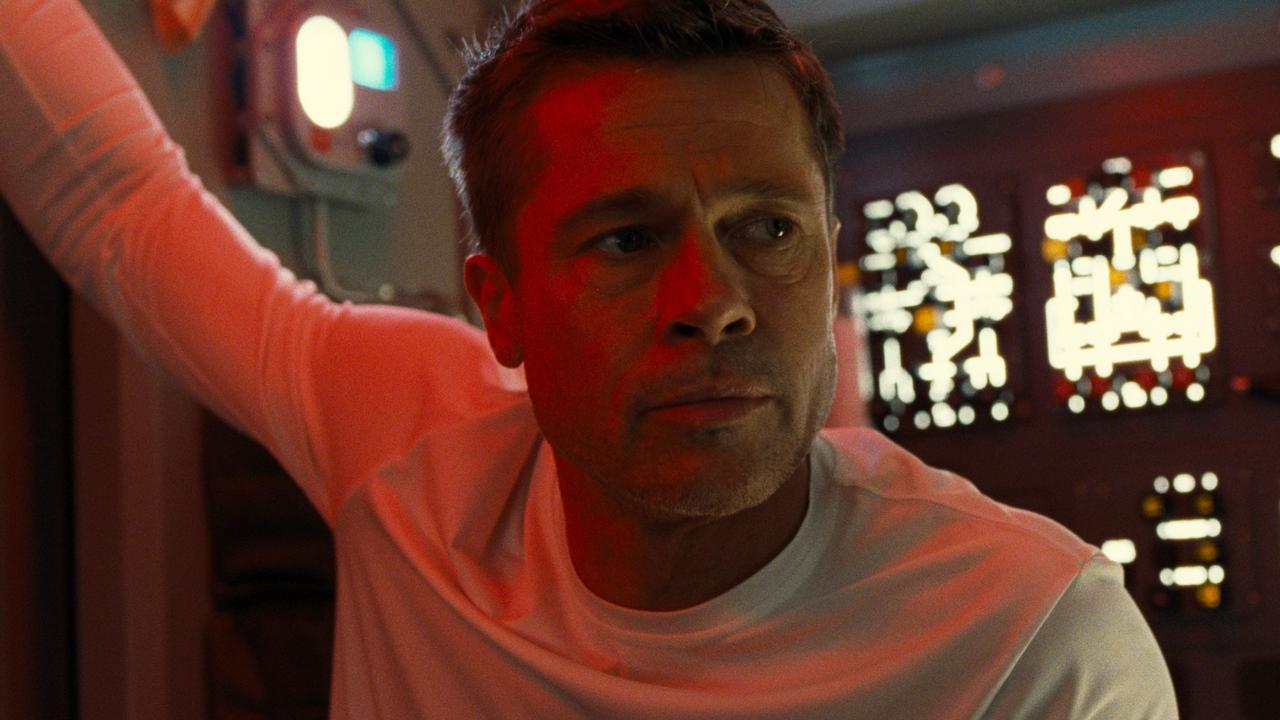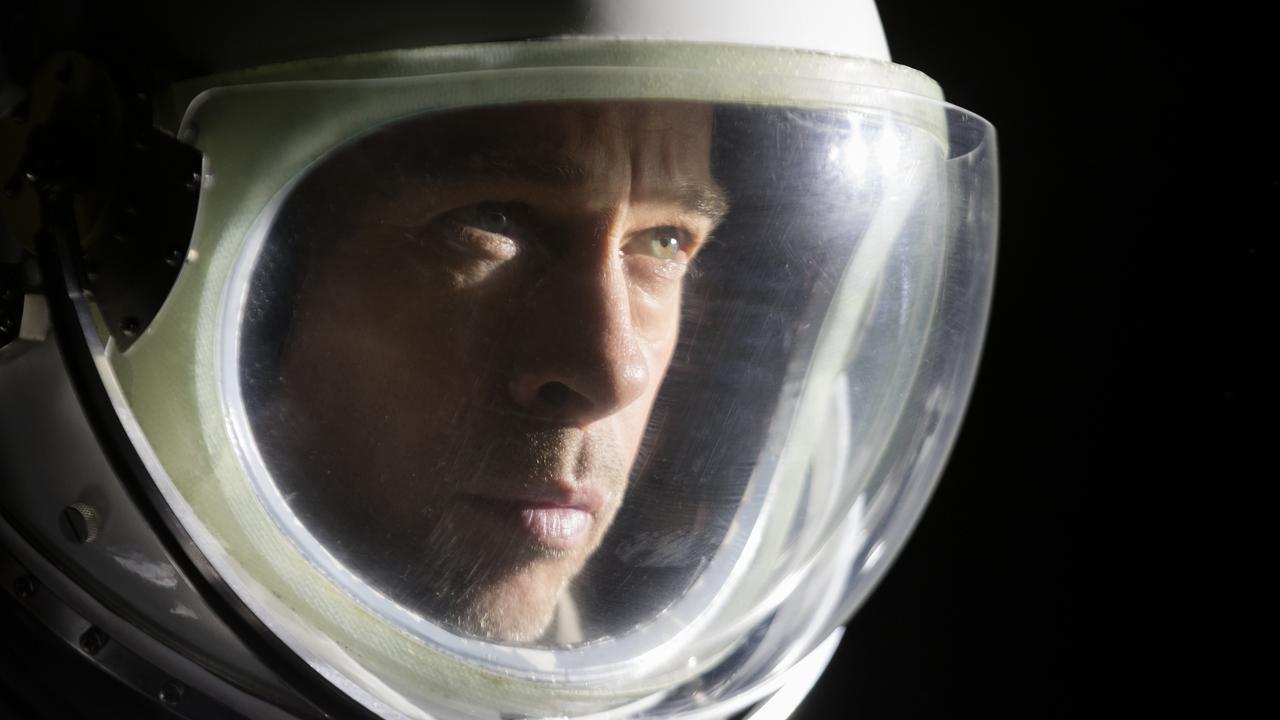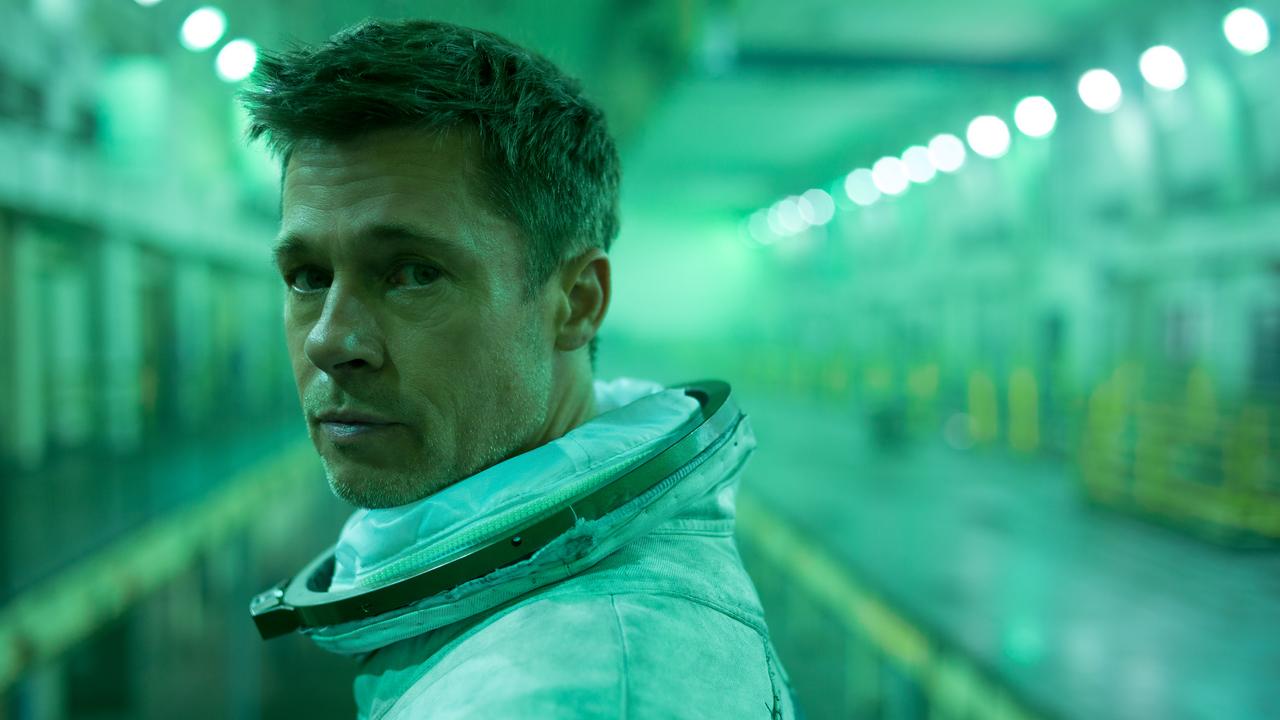Brad Pitt's Ad Astra is emotionally poignant and visually arresting
Sometimes we're so distracted by his good looks we forget how great an actor Brad Pitt can be. He's looking to be an Oscar shoo-in with his new movie.
Sometimes, Brad Pitt’s undeniable movie star charisma and good looks belies his talent, too easily written off as easy on the eye and a decent enough actor.
Well, Pitt is actually an astonishingly great actor if you team him with the right director and the right character.
Perhaps it’s that he’s been so sparing with his on-screen presence of late, that audiences will latch onto any part of him he’ll share, and we have been spoilt between Ad Astra and last month’s Once Upon a Time in Hollywood.
He’s been preferring to lend his weight behind the scenes as a producer on movies including 12 Years A Slave and Moonlight through his company Plan B. For 12 Years A Slave, Pitt won an Oscar as a producer when the movie claimed Best Picture.
Ad Astra may be Pitt’s best chance at an acting Oscar. He is nothing short of phenomenal in this remarkable, poignant and visually arresting film from James Gray (Lost City of Z).

Pitt plays Major Roy McBride, an even-keeled astronaut who’s known for having a heartrate that never rises above 80 bpm, even in times of extreme stress.
One of those times is Ad Astra’s jaw-dropping opening sequence. Roy is stationed on the International Space Antenna, a structure suspended between space and the Earth’s horizon. He’s suited up and climbing down some stairs when an energy pulse sends him plunging down.
The vertiginous fall, shot sometimes from Roy’s point-of-view and sometimes in a super wide shot where he’s a tiny figure tumbling towards the atmosphere, is a technical marvel. But even as we are slack-jawed at the sequence, Roy’s voice is calm, communicating practical information through his comms unit, before he deploys the parachute.
That ability to compartmentalise is core to his characterisation. But it’s a bit like a space shuttle or ship — you can shut sections off, but then it becomes unused.
His superiors read him in what they think is behind the energy surges — a “crisis of unknown magnitude”. They tell him his father, the celebrated space explorer Clifford McBride (Tommy Lee Jones) is likely not dead as everyone had assumed, and may be behind the destructive forces.

Clifford left Roy (then only a teen) when he embarked on a space mission to Neptune almost three decades earlier, and the team stopped communicating many, many years ago.
Roy is being recruited to travel to Mars, via the moon, where he can relay a secure, pre-written message to his father in the hopes of eliciting a response.
The plot is merely a device for what Ad Astra is really about, an exploration of one man’s emotional limits in the same way that space exploration reflects how far we can push ourselves as a species.
The introspective Roy has deep-seated father issues from his abandonment, and the walls he’s built up starts to collapse in on itself the further he is away from Earth, which we glean from his ethereal voiceover.
Pitt is beautifully understated in this role, and he does a lot with his eyes — watch how he darts them, his frequency of blinks, it’s enough to tell the whole story. Even though he starts off subdued, it builds to an emotional climax though he’s doesn’t seem tempted to chew the scene where others might.
The cast also includes the likes of Ruth Negga, Donald Sutherland and Liv Tyler, but they barely feature. This is a movie that belongs to Pitt.

For all of its emotional weight, Ad Astra is still a space movie, and an incredibly accomplished one at that.
Gray creates gorgeous imagery (Negga against the backdrop of the Mars outpost is stunning) and there’s a thrilling and tense buggy chase with laser guns on the moon that will make you draw breath.
Max Richter’s (Waltz with Bashir, The Leftovers) commanding score is the perfect accompaniment to Gray’s direction, and the sound design which reflects that space is silent.
If you can, see this movie on the biggest screen you can find, with a superior surround sound system.
Ad Astra is reminiscent of last year’s First Man — not just because they’re both technically brilliant space movies grounded by extremely interior lead characters.
Like First Man, Ad Astra delivers a sensory and emotional experience that is almost overwhelming in how masterful it is.
Rating: 4.5/5
Ad Astra is in cinemas from Thursday, September 19
Share your movies and TV obsessions | @wenleima




